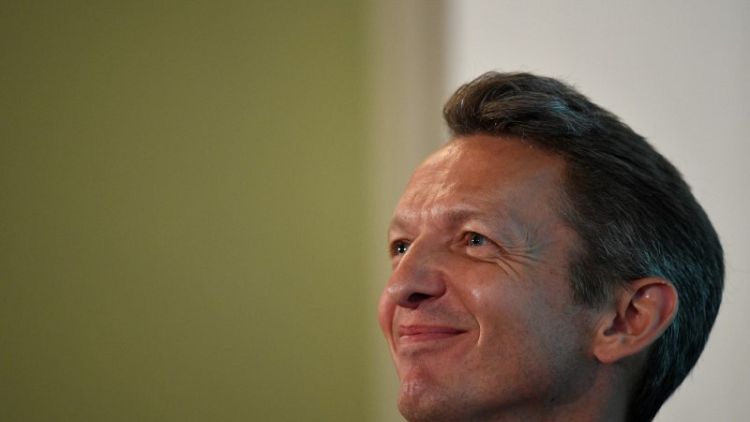By David Milliken
LONDON (Reuters) - Central banks may need to run looser monetary policy if markets for particular goods and services become dominated by a handful of firms, Bank of England chief economist Andy Haldane said on Friday.
Addressing an annual gathering of central bankers and economists hosted by the Federal Reserve Bank of Kansas City, Haldane looked at the theoretical implications of weaker competition -- a particular concern in the United States.
"A rise in market power may, by constraining demand, generate an added incentive to run loose monetary policy," he said at the U.S. resort of Jackson Hole.
Haldane did not address the outlook for British monetary policy in his speech, and this year he was an early advocate of raising UK interest rates for only the second time since before the 2008 financial crisis.
The BoE increased its main interest rate to 0.75 percent from 0.5 percent on Aug. 2, and Governor Mark Carney said market expectations of around one rate rise a year for the next three years were a good rule of thumb.
Haldane said that if weaker competition led to firms having greater pricing power, then central banks should focus on boosting growth when they faced a trade-off between doing that and getting inflation back to target.
"(Firms') market power increases the degree of price flexibility in the model," he said. "This makes it optimal to do a greater amount of -- now less costly -- output-smoothing in the face of trade-off-inducing shocks."
Earlier research had suggested labour markets dominated by a small number of powerful firms could lead to weaker wage growth for a given amount of demand, also pointing towards lower average interest rates, Haldane said.
Earlier this month the BoE published for the first time its estimate of the medium-term equilibrium interest rate for the British economy. This was around 2.5 percent, based on the BoE's 2 percent inflation target, compared with about 4.5 percent before the financial crisis.
(Reporting by David Milliken; editing by David Stamp)



